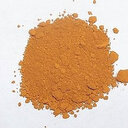Biochemical perspectives of xylitol extracted from indigenous agricultural by-product mung bean (Vigna radiata) hulls in a rat model.
Sleutelwoorden
Abstract
BACKGROUND
The production of xylitol from lignocellulosic material is of great interest around the world. It can be used as bulk sweetener and its possible lower energy value has increased acceptance for discerning consumers. Xylitol was produced from indigenous agricultural by-product (mung bean hulls) through Candida tropicalis fermentation. Further, xylitol incorporation at different concentrations (0, 100 and 200 g kg⁻¹) was carried out with the purpose of appraising the suitability and claimed health benefits of this dietetic ingredient in food products. Asserted biochemical perspectives of the xylitol intake were evaluated through biological studies for normal and streptozotocin-induced diabetic rats.
RESULTS
The addition of xylitol significantly affected feed intake, weight gain, liver and cecum weight in both normal and diabetic rats. The biochemical profile of serum was improved with xylitol incorporation in the diet. Serum glucose, cholesterol and triglycerides levels were decreased depending on xylitol intake level.
CONCLUSIONS
The results of the present study demonstrated that mung bean hulls have high potential as a new feedstock for xylitol production. In addressing the current concerns of obesity and diabetes, xylitol extracted from such agricultural waste should be considered in diet-based therapies for weight loss programmes.





